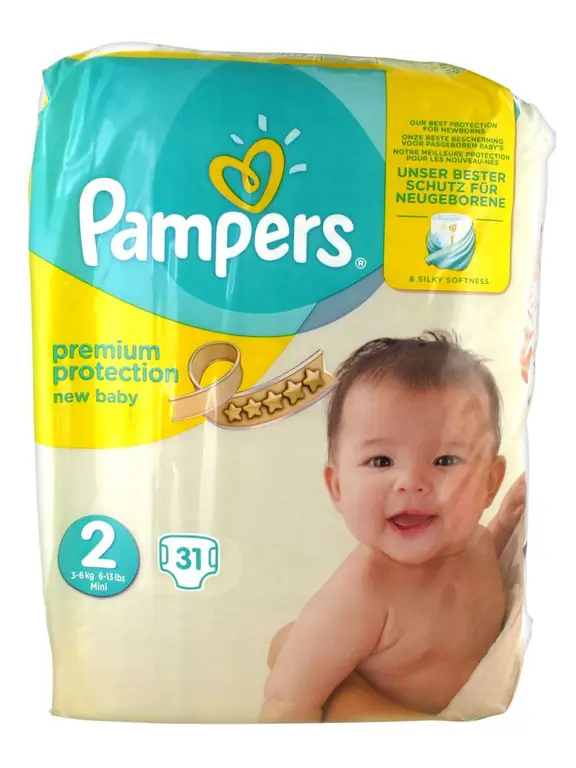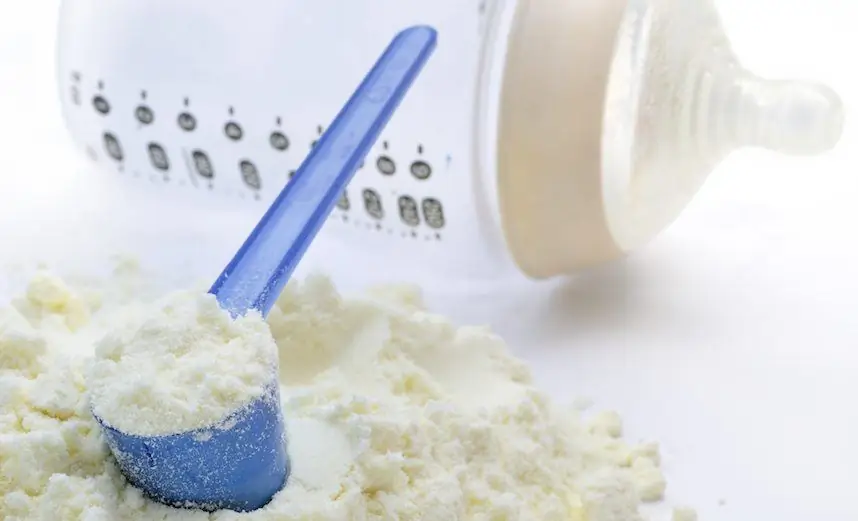2026 Author: Priscilla Miln | miln@babymagazinclub.com. Last modified: 2025-01-22 17:55:18
Children's antipyretics have the right to prescribe only a pediatrician. However, in some cases, when the child has a fever, and the decision must be made quickly, there is no time to wait for the doctor. Parents often take on a serious responsibility and give medicine to a sick baby on their own. In order not to be mistaken, you need to know what drugs are allowed to be given to infants, how to reduce the temperature in an older child, and which children's antipyretics are the best.
Drugs designed to quickly bring down the temperature are called antipyretics. Such drugs do not cure, but only help to relieve the symptom by influencing the thermoregulatory point in the hypothalamus. If the child has a fever, then ibuprofen and paracetamol will be the best children's antipyretics.
Prohibited antipyretics for children
UThere are many commercial names for antipyretic drugs. In addition, they differ in manufacturer, dosage form, attractive packaging and, of course, cost. Most of these drugs are divided into 2 groups, depending on the active substance. These may be drugs based on ibuprofen or paracetamol.

However, there are medications that children are strictly forbidden to take:
- Analgin can cause side effects such as nausea, vomiting, anemia and dizziness. In babies, the medicine can generally cause anaphylactic shock, so it is unacceptable to conduct such experiments.
- Drugs based on aspirin are contraindicated in children under 12 years of age. If you give this substance with chickenpox, then the child may develop a deadly Reye's disease, which is characterized by acute liver failure.
Paracetamol
This medicine was first marketed in 1953 in the United States of America. Instead of aspirin, which was indispensable at that time, the pharmaceutical industry proposed a new drug, which remains in demand in pediatrics to this day. What should be considered when using this medicine?
- Children's antipyretics based on paracetamol are prescribed for conditions such as fever, influenza, SARS, measles, chickenpox, rubella, bronchitis, otitis media, pneumonia, and also during teething. In addition, the indication for use isbacterial infection of various localization, including the urinary tract.
- Children's paracetamol antipyretics are the safest, and many of them can even be given to infants from the age of one month. However, up to three months, the baby must be treated under the strict supervision of a pediatrician, since many components of the drugs, especially with prolonged use, can cause allergy symptoms and overdose. These include the following manifestations: redness of the skin, itching, nausea, swelling, diarrhea and vomiting. As a rule, after discontinuation of the drug, these symptoms quickly disappear.

- Paracetamol should be given to a child very carefully in case of impaired kidney, liver function, as well as diabetes and viral hepatitis.
- It should be noted that paracetamol is a kind of indicator of the severity of the disease. For example, if he quickly knocks down a high temperature in a child, it means that the baby develops SARS. But with influenza, bacterial and fungal infections, this substance can act for a short time and very weakly.
- You need to calculate the dosage of the drug very carefully. As a rule, 10-15 mg of the active substance is recommended per kilogram of the child's body weight. The daily rate should not exceed 60 mg / kg. If the temperature is very high, you can raise the daily rate to 90 mg. However, a minimum of 4 hours should elapse between doses.
Paracetamol-based medicines
Drug list:
- Panadol.
- Efferalgan.
- "Tsefekon D".
- Paracetamol.
- Calpol.
These drugs are available in the form of tablets, suspensions and rectal suppositories.
Ibuprofen
This is the second most popular children's antipyretic and was first registered in the UK in 1962. It was originally taken as a non-steroidal anti-inflammatory drug for arthritis.

Consider the features of the use of this substance:
- Ibuprofen has an antipyretic and analgesic effect. It is prescribed in the case when paracetamol cannot cope with its task (either slightly reduces the temperature, or does not affect at all), or if the child has an allergic reaction to drugs with paracetamol.
- Possible side effects include dizziness, overexcitation, nausea, vomiting, itching, hives, constipation, diarrhea, headache, low blood pressure and tachycardia. In addition, ibuprofen makes it difficult to pass urine.
- The dosage of the drug is 10 mg per kilogram of body weight. The norm per day is 30 mg. The dosage should not be exceeded even at very high temperatures.
- Ibuprofen has a longer duration of action, so it is best given at night. During the day, you can use paracetamol. In no case should these two drugs be given at the same time, they can be alternated with an interval of at least 6 hours. However, for example, Ibuklin Junior is a medicine that combinesparacetamol and ibuprofen. It is usually given when the cause of the fever has not been identified. In such cases, ibuprofen is great at fighting germs, and paracetamol is great at fighting viruses.
Ibuprofen drugs
Drug range with this substance:
- Ibufen.
- Nurofen.
- Ibuprofen.

Such drugs are available in the form of tablets, suspensions and suppositories. Children's antipyretics without paracetamol are prescribed for children from the age of three with allergies, kidney and liver failure, asthma, hearing loss, gastritis, stomach ulcers and blood diseases.
Nimulid
Children's antipyretic "Nimulid" in the form of a suspension is also popular. The main active ingredient of this drug is nimesulide. Also present here is gum, sucrose, ricin oil, glycerin. To improve the taste, the manufacturer adds vanilla, mango, etc. It is worth noting that this medicine is more effective than ibuprofen and paracetamol, since it lasts up to 12 hours. It is prescribed for osteoporosis, arthritis, rheumatism, ENT diseases, after dental treatment and for ligament injuries.
However, this drug should not be given to children under 6 years of age, as well as with stomach ulcers, impaired kidney and heart function, a tendency to bleeding, individual intolerance. In addition, the drug has such side effects: heartburn, nausea, drowsiness, arrhythmia, spasms in the bronchi, anemia, circulatory disorders, changes in blood pressure.
Viburkol
This is a complex homeopathic remedy in the form of rectal suppositories. It is suitable for children of all ages. Contraindications include only individual intolerance and allergies. The composition of the drug includes the following components: chamomile, bittersweet nightshade, large plantain, belladonna (Belladonna), calcium carbonate, meadow lumbago. The drug is in high demand because it contains only natural substances.

Indications include:
- painful teething with fever;
- ARVI (as an addition to the main treatment);
- symptoms of dyspepsia;
- addition to the treatment of mumps, chickenpox, measles;
- nervous excitement;
- inflammation of ENT organs;
- convulsions.
There were no contraindications for the drug.
When you can bring down a child's temperature
First of all, it is worth noting that a high temperature is a protective reaction when the body tries to cope with the causative agent of the disease on its own. At temperatures up to 38 ° C, there is a rapid production of substances that come into the fight against harmful microorganisms. Why, for example, such traditional methods of treatment as wraps, hot drinks and foot baths help to recover faster? Yes, because they contribute to the heating of the body. Therefore, pediatricians at temperatures up to 38 ° C do not recommend giving children's antipyretics. It will be better for children if the body can cope with this on its own.condition.

Temperature above 38°C starts to disturb the child. He has a malaise, his head starts to hurt, it becomes hot. Children's antipyretics up to a year are best given in the most extreme cases. First, you can try to bring down the temperature with folk remedies. Throw off the blanket from the baby, take off all warm clothes, leaving only light pajamas (in some cases, you can remove them too). At the same time, there should be no drafts in the room, otherwise the child may catch a cold.
The hot legs and arms of a small patient can be wiped with lukewarm water, the evaporation of which will cool the body, causing the temperature to drop. Sometimes, at a high temperature, the limbs can be cold, which indicates a narrowing of the blood vessels when the skin is not able to give off heat normally. In this case, you can dilute alcohol with water in a ratio of 1: 1 and wipe the legs, arms, chest with this composition until the skin turns red. If all these measures do not help, then you can resort to antipyretics. However, all this is only the first aid to a small patient, the main treatment should be prescribed only by a qualified specialist.
Which form of the drug should I choose
Which is better to give your child: suspension, tablets, or use of rectal suppositories? The choice of drug depends on many factors:
- Suspension is considered the best remedy for a child up to twelve years old. The liquid is absorbed into the blood faster, starting to act after20 minutes. However, the disadvantage of such a drug is an allergy to dyes and fruit additives. Suspension is the best baby antipyretic for babies.
- Pills are given to older children who can swallow the pill. The medicine should be taken with water, although tablets can be crushed and diluted with liquid.
- Rectal suppositories are prescribed mainly for young children who do not want to swallow the suspension and constantly spit it up. Candles are placed at night, even for a sleeping baby, and they last longer.
Temperature injection
Lytic injection consists of an antispasmodic, an analgesic and an antihistamine. A temperature injection is shown to the child in such cases:
- patient unable to take oral medication (unconsciousness, vomiting);
- rapid fever that neither ibuprofen nor paracetamol can bring down;
- febrile convulsions.

Contraindications:
- cannot be used frequently, only in emergency cases;
- acute pain (suspicion of inflammation of the appendix);
- age up to a year (because it contains papaverine and analgin).
The lytic injection is usually given by paramedics.
Conclusion
Children's antipyretics listed above should be used with caution. It is necessary to take into account the presence of concomitant pathologies, especially chronic ones, the age and characteristics of the child'sorganism.
Recommended:
Identification and development of gifted children. Problems of gifted children. School for gifted children. Gifted children are

Who exactly should be considered gifted and what criteria should be followed, considering this or that child the most capable? How not to miss the talent? How to reveal the hidden potential of a child who is ahead of his peers in terms of his level of development, and how to organize work with such children?
The best sport for children from the year. Equestrian sport for children

Sports for active children are extremely diverse, but there is one very interesting, exciting (especially for a child) and responsible sport that is worth mentioning separately - horse riding
At what temperature are children given antipyretics? Doctor's recommendations

Parents should know how to act in a given situation. Is it possible to bring down the temperature of 38 degrees and upon reaching what marks should the child be given an antipyretic? Cover up or undress? How to cope with the disease on your own if there is no doctor nearby?
The best diapers: list, manufacturers, rating of the best and parent reviews

Parents of newborns, in addition to other products, need to pay special attention to children's hygiene products. The choice and purchase of high-quality diapers and special panties is a special part of the family's expenses, which must be approached with the utmost responsibility. Because not only his well-being, but also his mood depends on how comfortable the baby will feel
Children's fermented milk formulas: names, list, rating of the best, manufacturers, composition, purpose, instructions for use, dosage and recommendations from doctors

Sour-milk infant formulas belong to the medical category, which are used to correct he alth problems in infants to restore and normalize the digestive process. Their use, frequency and dosage are recommended only with the permission of the pediatrician

